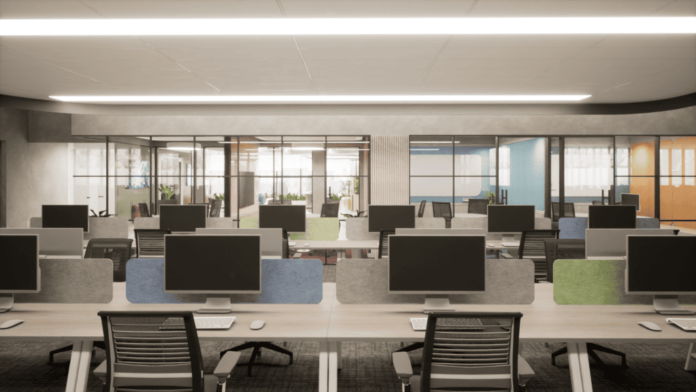In the dynamic landscape of Philippine business, the concept of the workplace has undergone a significant transformation over the years. As companies strive to enhance productivity, attract talent, and foster creativity, the role of office furniture has evolved from mere utility to a crucial element in shaping the modern workspace. From traditional wooden desks to ergonomic chairs and collaborative workstations, the Philippines has embraced a diverse array of office furniture solutions to meet the evolving needs of businesses. Let’s delve into the journey of office furniture in the Philippines and explore how it has revolutionized workspaces across the archipelago.
Office Furniture:
In recent years, there has been a growing emphasis on ergonomic office furniture in the Philippines. Recognizing the importance of employee well-being and productivity, companies are investing in ergonomic chairs, standing desks, and adjustable workstations office furniture. These furniture pieces are designed to support proper posture, reduce strain, and enhance comfort during long hours of work. As Filipinos spend a significant portion of their day in the office, prioritizing ergonomic furniture has become essential to mitigate health issues such as back pain and repetitive strain injuries.
Innovative Designs for Collaboration:
The traditional cubicle-centric office layout is gradually giving way to open-plan spaces that promote collaboration and interaction among employees. In response to this trend, office furniture manufacturers in the Philippines have introduced innovative designs that cater to collaborative work environments. Modular desks, flexible seating arrangements, and multifunctional furniture are becoming increasingly popular, allowing teams to adapt their workspace according to varying tasks and projects. These designs not only foster teamwork but also facilitate communication and idea-sharing, driving creativity and innovation within organizations.
Steel Cabinet:
With growing environmental awareness, sustainability has emerged as a key consideration in office furniture procurement. Philippine companies are increasingly opting for eco-friendly furniture solutions made from renewable materials such as bamboo, recycled wood, and environmentally friendly fabrics steel cabinet. Additionally, there is a rising demand for furniture pieces that are designed for durability and longevity, reducing the need for frequent replacements and minimizing environmental impact. By embracing sustainable office furniture practices, businesses in the Philippines are not only reducing their carbon footprint but also contributing to a healthier planet for future generations.
Customization and Personalization:
One size does not fit all when it comes to office furniture, and Philippine companies are realizing the importance of customization to meet specific needs and preferences. Office furniture suppliers now offer a wide range of customization options, allowing businesses to tailor furniture pieces according to their branding, space requirements, and ergonomic considerations. Whether it’s choosing the color scheme of chairs or configuring modular workstations to fit unique office layouts, customization empowers organizations to create functional and aesthetically pleasing work environments that reflect their corporate identity.
Reception Desk:
In the age of digital transformation, technology integration has become a defining feature of modern office furniture in the Philippines. From smart desks equipped with wireless charging capabilities to ergonomic chairs with built-in posture sensors, furniture manufacturers are incorporating cutting-edge technology to enhance user experience and productivity reception desk. Furthermore, the integration of connectivity features enables seamless collaboration and communication, empowering employees to stay connected across various devices and platforms. As technology continues to reshape the workplace, Philippine companies are embracing furniture solutions that seamlessly integrate with the digital ecosystem of the modern office.
The Rise of Remote Work:
The COVID-19 pandemic has accelerated the adoption of remote work practices, prompting organizations in the Philippines to rethink their approach to office furniture. With more employees working from home or in hybrid arrangements, there is a growing demand for portable and adaptable furniture solutions that support remote work setups. Folding desks, ergonomic laptop stands, and lightweight chairs are among the furniture pieces gaining popularity among remote workers in the Philippines. As the lines between home and office blur, versatile furniture designs that cater to the needs of remote work are becoming increasingly relevant in the Philippine market.
Conclusion:
The evolution of office furniture in the Philippines reflects the changing dynamics of the modern workplace. From ergonomics and collaboration to sustainability and technology integration, furniture manufacturers are continuously innovating to meet the evolving needs of businesses and employees. As organizations strive to create productive, engaging, and inclusive work environments, the role of office furniture will continue to be paramount in shaping the future of work in the Philippines. By embracing innovative furniture solutions that prioritize comfort, functionality, and sustainability, Philippine companies are not only enhancing the well-being and productivity of their workforce but also driving positive change in the way we perceive and interact with our workspaces.
Read More: reception desk







